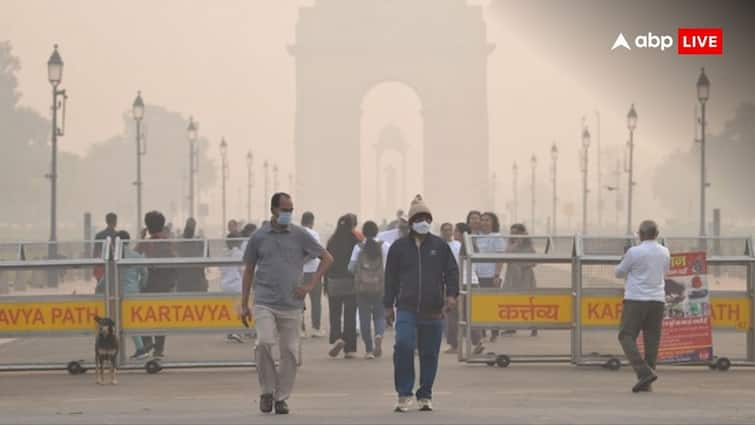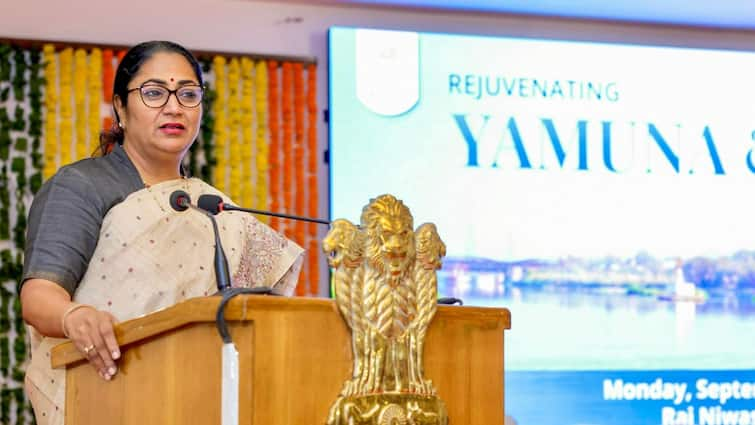Delhi’s brief spell of clean air has come to an end as the Commission for Air Quality Management (CAQM) on Monday implemented Stage I of the Graded Response Action Plan (GRAP) across the National Capital Region (NCR) following a sharp decline in the city’s air quality.
The decision came after Delhi recorded an Air Quality Index (AQI) of 211, falling into the “poor” category, according to CAQM. Officials said the Sub-Committee on GRAP reviewed the latest readings from the India Meteorological Department (IMD) and the Indian Institute of Tropical Meteorology (IITM), both of which forecast that pollution levels are likely to remain in the “poor” range over the coming days.
Stage I Curbs Imposed Across NCR
Following the review, the Sub-Committee decided to invoke all measures listed under Stage I of the revised GRAP schedule issued on 13 December 2024. The directives, implemented with immediate effect, require all agencies across Delhi-NCR to intensify pollution control measures to ensure that the AQI does not slip further.
“Actions under Stage-I of the extant GRAP shall be implemented, monitored, and reviewed by all the agencies concerned in the entire NCR to ensure that the AQI levels do not slip further. All implementing agencies shall keep strict vigil and intensify measures of the extant GRAP schedule,” the CAQM stated. Citizens have also been urged to strictly follow the Stage-I Citizen Charter to minimise personal pollution contributions.
According to the Central Pollution Control Board (CPCB), the national capital recorded a “moderate” AQI of 159 at 11:50 AM on Monday. However, the levels worsened by afternoon, touching a 24-hour average of 189 by 4 PM, up from 167 on Sunday. The CPCB data also showed the first instance of “poor” air quality around 10:30 AM—the first since June 11, when Delhi last logged an AQI of 245.
The Air Quality Early Warning System (EWS) bulletin noted that Delhi’s air quality is “very likely to be in the ‘poor’ category from October 14 till October 16,” and may fluctuate between “poor” and “very poor” in the days ahead.
What Is Included In GRAP-I
GRAP Stage I is the initial, preventative phase of the Graded Response Action Plan, which is activated when the Air Quality Index (AQI) in the Delhi-NCR region moves into the ‘Poor’ category (AQI 201-300). This stage focuses on a set of fundamental and widespread measures to control pollution at its source before the air quality deteriorates further. Key actions include strict enforcement of dust control norms at construction and demolition (C&D) sites, mandatory mechanised sweeping and water sprinkling on roads, and a stringent ban on the open burning of garbage and biomass. Authorities also step up vigilance by ensuring strict compliance with ‘Pollution Under Control’ (PUC) certificates for vehicles, enforcing the ban on overaged diesel and petrol vehicles, and prohibiting the use of coal or firewood in tandoors at eateries, mandating a shift to cleaner fuels like gas or electricity. The overall goal of Stage I is to maintain the air quality at the lower end of the ‘Poor’ category through proactive, essential regulatory actions across all polluting sectors.
Smog Season Returns
After enjoying 124 consecutive days of cleaner air—comprising 77 days in the “satisfactory” category and 47 in the “moderate” range—Delhi’s pollution woes are resurfacing. Experts attributed the decline to the retreat of the monsoon, falling temperatures, stubble burning, and festive emissions.
Mahesh Palawat, Vice President (Meteorology) at Skymet Weather, told Hindustan Times that wind speeds had dropped to between 6 and 10 km/hr through Monday. “Wind direction is westerly to northwesterly, and there will be marginal stubble intrusion. We don’t expect significant change in weather, with similar wind direction and low wind speed to persist,” he said.
Data from the Decision Support System (DSS) revealed that stubble burning accounted for 0.62 per cent of Delhi’s PM2.5 concentration on Monday—an increase from 0.24 per cent the previous day. However, officials clarified that stubble burning is not yet the main contributor to the current spike in pollution levels.
In a related development, the Delhi government announced that a 41-kilometre stretch of the Southern Ridge will be declared a “Reserved Forest” to help expand the city’s green cover. Chief Minister Rekha Gupta said on X that the initiative marks “a crucial step in protecting Delhi from pollution and strengthening its environmental balance.”



